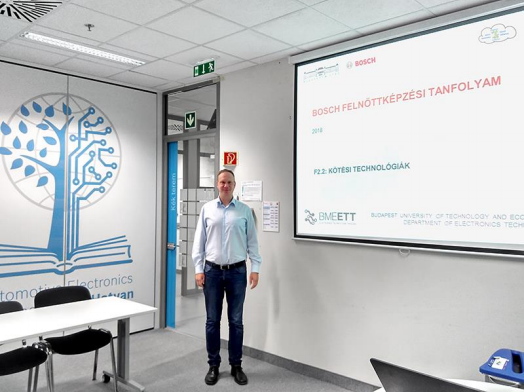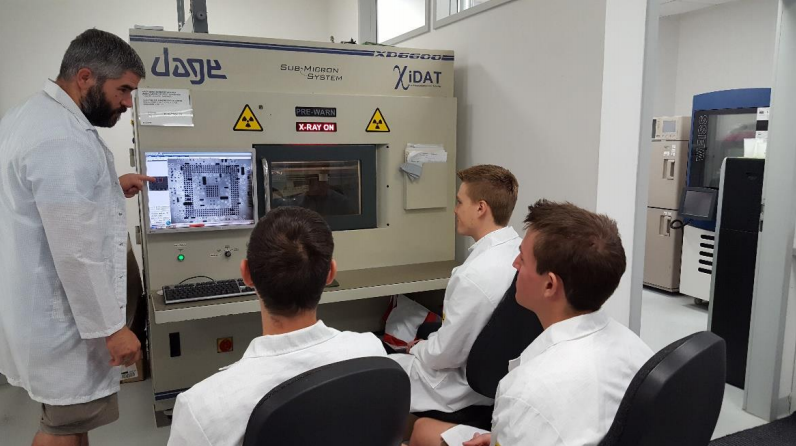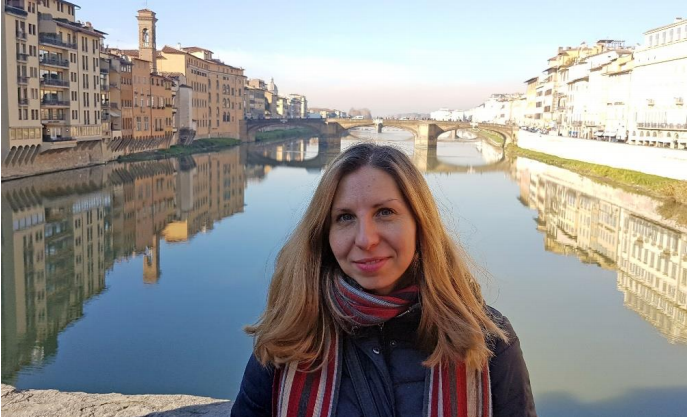|
Education of Workers along Industrial Needs

Industry is in the need of revising their experts knowledge carried from the academic studies, also
preparing them for future needs alongside the current challenges posed from the race of the
commercial sector.
The Department of Electronics Technology (Budapest University of Technology and Economics), is
taking parts in trainings for corporate partners (small, middle or large enterprises, including the large
electronic manufacturing plants of the Central Europe region). The expected impact of such trainings
is to satisfy the knowledge requirement of young and senior specialists responsively to the labour
market needs.
The department offered the following training courses in the framework of the MECA educational
cloud system: "Technology of Electronics Products", "Virtual Laboratory Support for Microelectronics
Packaging Education", "Multi-Media Enhancement of Teaching Sensors and MEMS" and "Assembling
and Inspection Technologies”. The portfolio covers most of the requirements arising from the regional
industry.
On the picture, Krammer Oliver is hosted in Robert Bosch Elektronika Kft, Hungary for a training
seminar based on the materials described above. The course of Dr. Krammer is an example, how
academia can help to connect their knowledge with industrial requirements of education. The wide
range of available courses, and the personal contact between teacher and audience is enabling more
direct reception and application of the gained knowledge in everyday practice.
Training Students for Future Requirements and Current Trends

Trainings are especially important in the field of electronics and for the related industrial workers.
The ever-changing trends of development and commercial aspects need careful revision and
extension of the academic materials for students and workers alike (engineers, researchers and
experts with specific tasks).
The Department of Electronics Technology (Budapest University of Technology and Economics),
developed training courses in the framework of the MECA educational cloud system, which is not
interesting from both sides. Students and experts of the field may also utilize the knowledge of the
given materials, which are prepared in interactive online courses in the following topics: "Technology
of Electronics Products", "Virtual Laboratory Support for Microelectronics Packaging Education",
"Multi-Media Enhancement of Teaching Sensors and MEMS" and "Assembling and Inspection
Technologies”.
Robert Kovacs (expert of EFI-Labs company - on the picture above) prepares his team of students on
site for current trends in electronic failure investigations - namely, points of investigating
microelectronic structures with X-Ray microscopy. The students were prepared previously with the
help of the aforementioned modules, including the virtualized laboratory, presenting life-like
environments of lab based workspaces. The company of EFI-Labs takes advantage of the virtual
preparation, then continuing their education to present the gained knowledge on their laboratory site.
The effective use of e-learning with cloud based modules helps the company both as a knowledge
base, and as a tool for training students of the academia, a pool of potential new colleagues.
Erasmus+ scholarship for successful PhD student

The support of talented young researchers to facilitate their professional development trough gaining
valuable field experience outside their host institution is one of the key aspects of post gradual training.
Judit Kámán is a PhD candidate at the Department of Electronics Technology (Budapest University of
Technology and Economics), currently writing her dissertation about measuring the mechanical
properties of surfaces on the nanoscale with novel atomic force microscopy (AFM) methods, under the
supervision of Dr. Attila Bonyár.
During the autumn semester of 2017 Judit spent 5 months at the Department of Chemical Engineering,
University of Bologna, in the framework of an Erasmus+ mobility program (2017-1-HU01-KA103-
035203). In the laboratory lead by Dr. Giampaolo Zuccheri she learnt new AFM techniques, especially
focusing on the investigation of living cells. The undertaking also proved to be a good opportunity, to
test her developed measurement methods, their joint results helped to gain insight in the behavior of
the cells, which proved to be beneficial for both parties involved.
These days, besides writing her dissertation, Judit is also preparing for her closing comprehensive
examination in the field of Microelectronics and Technology (Doctoral School of Electrical Engineering)
to close her PhD studies and defend her thesis. For her preparations she regularly uses the interactive
online courses of MECA, especially in the following topics: “Technology of Electronics Products” and
“Multi-Media Enhancement of Teaching Sensors and MEMS”. She is very satisfied with the course
materials and feels that they enable an easy but in-depth comprehension of the topics.
|



